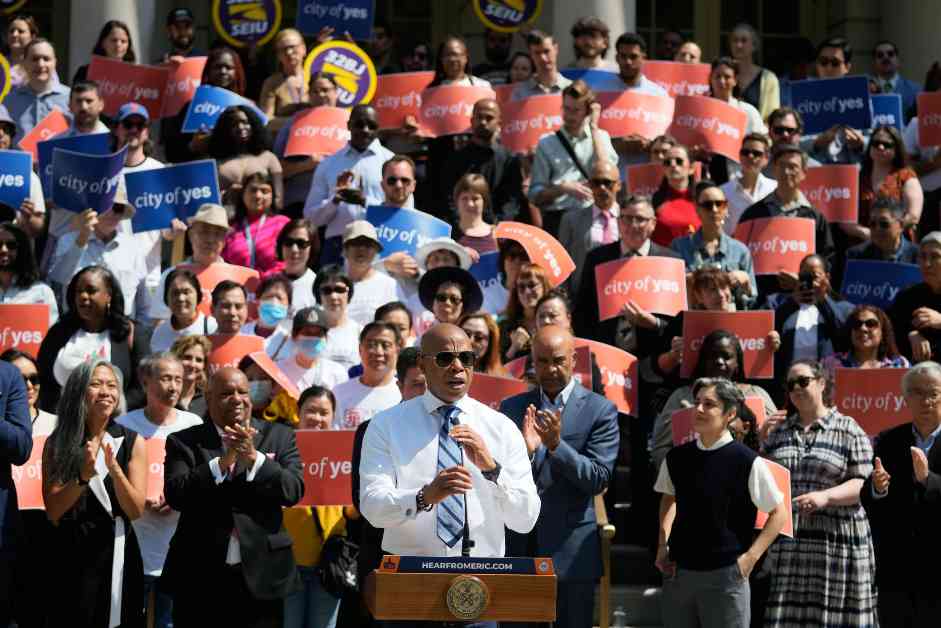Eric Adams’ Housing Agenda: A Critical Examination
Mayor Eric Adams recently unveiled his City of Yes housing plan, which he believes is a groundbreaking opportunity to address decades of discriminatory zoning laws in New York City. The plan aims to update zoning regulations to allow for the creation of housing that caters to individuals of all races and income levels in every neighborhood. This ambitious proposal has sparked both excitement and skepticism among city residents and policymakers.
Adams emphasized the historical context of the plan, highlighting how zoning laws in the 1950s and 60s restricted housing development, particularly in affluent, predominantly white neighborhoods. He sees the City of Yes as a chance to rectify past injustices and promote greater equity in housing opportunities across the city.
However, the mayor faces significant challenges in gaining approval for his plan. With scandals plaguing his administration and a City Council that is largely at odds with him, Adams must navigate a complex political landscape to secure the necessary support. The clock is ticking, as the City Planning Commission is set to review the zoning plan and pass it on to the City Council for consideration.
Controversies and Opposition
The City of Yes proposal has encountered strong opposition from various quarters, including 35 community boards that have voted against it. Critics argue that the plan represents a radical departure from existing city policies, which have traditionally allowed certain neighborhoods to resist new housing developments. The proposed changes, such as allowing for increased housing density in low-density areas and eliminating parking requirements, have sparked intense debate and resistance.
One of the key provisions of the plan that has drawn criticism is the proposal to permit homeowners to add accessory dwelling units (ADUs) on their properties. While ADUs have been successful in other regions, some opponents fear that this provision could lead to overdevelopment and undermine the character of residential neighborhoods. The debate over ADUs underscores the broader tensions surrounding the City of Yes proposal and the competing visions for housing in New York City.
The Path Forward
As Mayor Adams seeks to rally support for his housing plan, he must contend with a divided City Council and a skeptical public. The success of the City of Yes hinges on his ability to build consensus and address the concerns of various stakeholders. The mayor’s political acumen and leadership will be put to the test as he navigates the complex terrain of urban planning and housing policy.
Supporters of the City of Yes plan emphasize the urgent need for more housing in New York City and the potential benefits of the proposed changes. They argue that increasing housing supply is essential for addressing the city’s affordability crisis and ensuring that all residents have access to safe and affordable housing. The plan has garnered support from a diverse coalition of organizations, including advocacy groups, labor unions, and housing experts.
In the coming months, the fate of the City of Yes proposal will be decided by the City Council, where Mayor Adams must make his case and secure the necessary votes for approval. The outcome of this deliberation will have far-reaching implications for the future of housing policy in New York City and the broader efforts to promote equity and inclusivity in urban development.
As the debate over the City of Yes plan continues, it is clear that the issue of housing will remain a central concern for city residents and policymakers alike. The outcome of this proposal will shape the trajectory of housing policy in New York City for years to come, highlighting the critical importance of thoughtful and inclusive urban planning initiatives.
